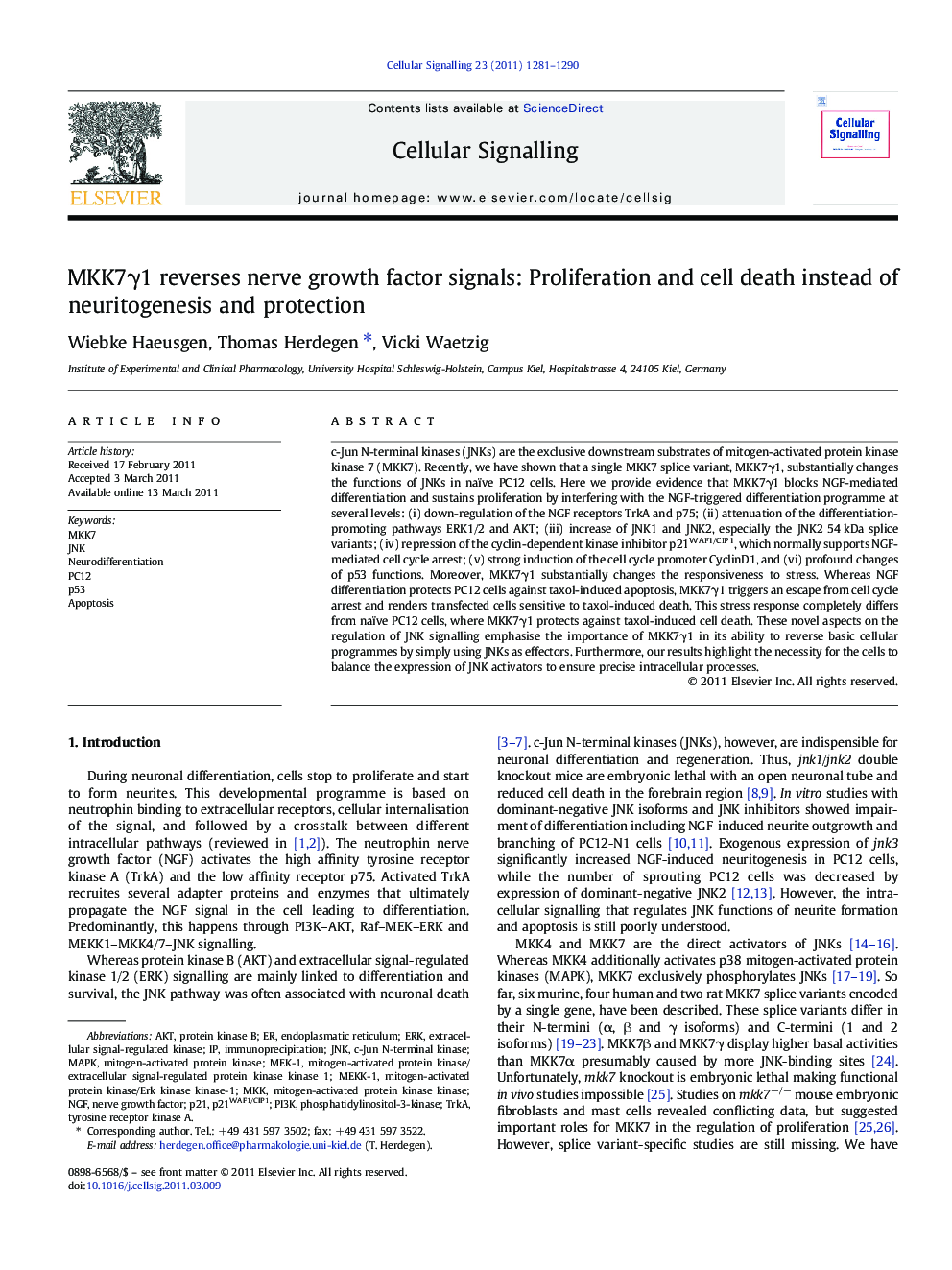| کد مقاله | کد نشریه | سال انتشار | مقاله انگلیسی | نسخه تمام متن |
|---|---|---|---|---|
| 1963703 | 1058491 | 2011 | 10 صفحه PDF | دانلود رایگان |

c-Jun N-terminal kinases (JNKs) are the exclusive downstream substrates of mitogen-activated protein kinase kinase 7 (MKK7). Recently, we have shown that a single MKK7 splice variant, MKK7γ1, substantially changes the functions of JNKs in naïve PC12 cells. Here we provide evidence that MKK7γ1 blocks NGF-mediated differentiation and sustains proliferation by interfering with the NGF-triggered differentiation programme at several levels: (i) down-regulation of the NGF receptors TrkA and p75; (ii) attenuation of the differentiation-promoting pathways ERK1/2 and AKT; (iii) increase of JNK1 and JNK2, especially the JNK2 54 kDa splice variants; (iv) repression of the cyclin-dependent kinase inhibitor p21WAF1/CIP1, which normally supports NGF-mediated cell cycle arrest; (v) strong induction of the cell cycle promoter CyclinD1, and (vi) profound changes of p53 functions. Moreover, MKK7γ1 substantially changes the responsiveness to stress. Whereas NGF differentiation protects PC12 cells against taxol-induced apoptosis, MKK7γ1 triggers an escape from cell cycle arrest and renders transfected cells sensitive to taxol-induced death. This stress response completely differs from naïve PC12 cells, where MKK7γ1 protects against taxol-induced cell death. These novel aspects on the regulation of JNK signalling emphasise the importance of MKK7γ1 in its ability to reverse basic cellular programmes by simply using JNKs as effectors. Furthermore, our results highlight the necessity for the cells to balance the expression of JNK activators to ensure precise intracellular processes.
Journal: Cellular Signalling - Volume 23, Issue 8, August 2011, Pages 1281–1290